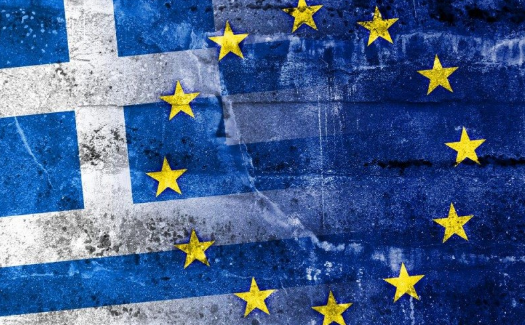
It could be called one of the world’s sharpest two-edged swords: whether to bail Greece out of its debt crisis and ease its financial woes, or leave the country to its own devices and let the chips fall where they may. Unfortunately, the trouble with the latter school of thought is that the remainder of the European countries are likely to end up dealing with their own troubles of an influx of migrants, continued terrorist threats, and whatever fallout would become theirs if Greece continues on the road to crisis.
Is it possible the Greek crisis to hit the gambling industry too? Recent research shows that casinos are afraid that the worst thing could happen is cutting their services to clients. The statistics are quite worrying: some of the casinos generate lost over 20 percent. The things are different regarding the online casinos. They generate billions thanks to the huge number of visitors due to their easy access. It is worth trying depositing at online casino because it is safer and you only need to know what are your options. The benefits are free games, bonuses, loyalty points, bet sizes and more. So there is a light in the tunnel for the gamblers.
In June 2016, the Board of Directors of the European Stability Mechanism (ESM) authorized a bailout package of 7.5 billion euros, or $8.4 billion, for Greece to keep paying its bills. The country also received pledges of additional aid, which had the effect of easing concerns over a continuing financial crisis.
This band-aid treatment was not without its detractors, namely Germany, which has stood in opposition to any bailouts until Greece makes serious and often painful changes. By contrast, however, the International Monetary Fund (IMF) holds the position that Greece cannot make changes without debt relief.
To Each His Own
A huge stumbling block to any kind of Greek debt relief–or aid of any kind–is a flaw in the euro system that many economists have argued about since the beginning of the EU concept, the idea that although the EU is banded together in terms of their monetary system when it comes to many of the sensitive matters of state, each of the 28 member countries are beholden to their own voters and taxpayers, and nobody else. This causes huge problems when member countries have their own interests to serve in terms of management, but must work with the other members to spend the money. All of these monies are overseen by the European Central Bank.
Ever since the Greek debt crisis started in 2010, most investors in Greek bonds have sold their interests, making them no longer vulnerable to what happens in Greece as the crisis continues. If there is a silver lining to this dark financial cloud, it’s the fact that other countries such as Spain, Portugal, and Ireland took the opportunity to restructure their economies, making them less vulnerable to the situation that Greece had come to find itself in.
Ripple Effect?
 When the Greek financial crisis was at its peak a few years ago, many economists were concerned that the problems Greece was having would spill over to the rest of the world, even going so far as to hypothesize that if Greece did, in fact, default on its debt, even leaving the EU, this could cause financial shocks around the world.
When the Greek financial crisis was at its peak a few years ago, many economists were concerned that the problems Greece was having would spill over to the rest of the world, even going so far as to hypothesize that if Greece did, in fact, default on its debt, even leaving the EU, this could cause financial shocks around the world.
Those who oppose this viewpoint counter with the belief that an exit from the EU by Greece wouldn’t be that bad of a thing. First, the EU had installed safeguards that would prevent such a situation from happening. Second, Greece took up such a small part of the overall EU that if it did leave it would probably have a minimal impact on the remainder of the EU countries, further, without having to support the struggling Greek economy, the EU would be better off since it would not continue to be supporting such a drag on its overall financial picture.
If Greece does hold an ace in the hole, it’s the fact that European leaders are trying very hard to avoid a continuation of the migration crisis that has, until now, pretty much confined itself to the area of the Aegean Sea.
Continue Reading… Greece’s Debt Crisis: Should the World Help or Not?/ II




